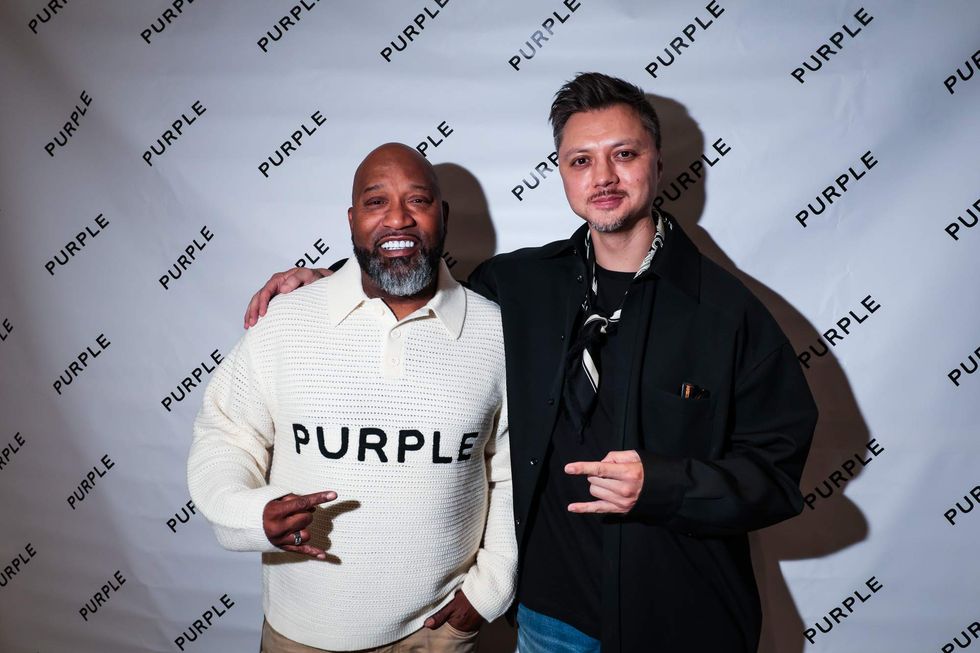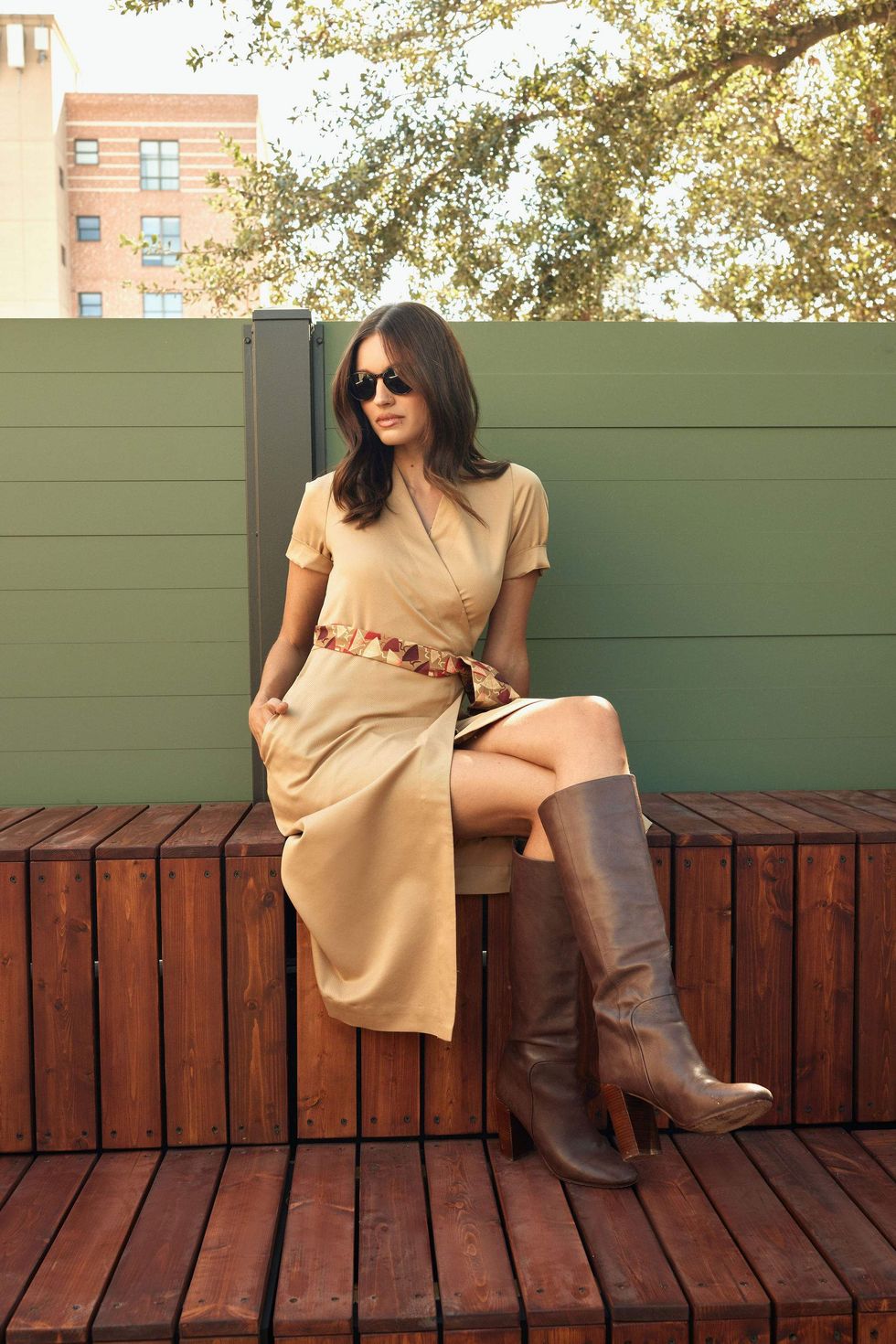The holiday shopping season is in full swing in Houston, and shoppers are already busy checking names off their gift lists. Despite the fashionably late arrival of Thanksgiving this year, there is still plenty of time to find the perfect presents for everyone on the proverbial shopping list.
Whether hunting for something stylish, timeless, or entertaining, this Houston-centric shopping guide covers everything. There are ideas for every budget, age, and style preference, making shopping a bit more effortless and fun. Happy shopping, Houston!
Ada & Edith
The Houston-based style-driven women's wear brand recently released its Fall/Winter 2024 collection featuring eight highly curated pieces made with beautiful fabrics and expert tailoring. The new online collection features dresses, matching sets, tops, and skirts.
Beaufort Bonnet Company
The upscale children's lifestyle apparel brand recently opened its boutique in Rice Village next to White House Black Market. The brand offers everything from traditional special-occasion apparel pieces to ready-to-play wear for boys and girls (sizes infant – 14). Moms will love the great shopping while kids will have fun at the store's play area.
Foreign Fare
Holiday jet setters will be thrilled to give or get Houston-based travel brand Foreign Fare's travel clothing. The bestsellers, the Jetsetter jacket and Wrap Me Up Dress, are a modern take on travel apparel and made from wrinkle-resistant fabrics that effortlessly go from day to night. They feature travel-ready amenities, including hidden pockets and adjustable waistbands.
From Marfa
Tanglewood's favorite children's apparel store offers the cutest holiday must-haves for babies to teens and complimentary gift wrapping that will save time during this busy season. Shoppers can snag holiday and winter finds from brands including Little English, Luigi Kids, Pink Chicken, Katie J NYC, and more. The boutique also offers toys, books, and accessories that make great gifts and stocking stuffers.
Kimono Zulu
Houston-based brand Kimono Zulu offers one-of-a-kind vintage kimonos that make a unique and memorable holiday gift. Each kimono provides a piece of Japan's craftsmanship and artistry and is a sustainable alternative to fast fashion. The brand's kimonos are available at its Upper Kirby boutique or online.
Krewe
Krewe, an independent eyewear brand founded in New Orleans, is opening its first permanent location in Houston in Rice Village. Nnown for its high-quality, small-batch, handcrafted frames, Krewe combines the style and culture of the Big Easy with a modern and iconic style. Krewe's new outpost is located at 5515 Kelvin Dr. #125 and opens on December 7.
Lafayette 148
Lafayette 148 has partnered with Save Venice, a leading American non-profit dedicated to preserving and promoting the artistic heritage of Venice, Italy. The partnership inspired a capsule collection, available at the brand's outpost in the Galleria, featuring dresses, tops, skirts, and accessories. The capsule collection's sales will be donated to Save Venice's "Women Artists of Venice" program through the end of 2024.
Léránt
This Galleria neighborhood boutique makes being the "hostess with the mostess" easy, especially during the holiday season with elegant finds at every price point. Shoppers will find everything from tableware and crystal to gifts and festive holiday decor. Customers can shop with 15 percent off their purchases on December 4 from 4-7 pm.
Lucchese Bootmaker
Lucchese has launched a new gemstone line just in time for the holiday season. The latest offering includes the Gemstone Suede Boot Collection featuring the famous Priscilla classic style, which now comes in new rich suede colorways for the holiday season. The Gemstone Python Boot Collection includes six distinctive styles with rich, new colorways — Emerald, Amber, and Garnet — in two silhouettes: the Presley Exotic and the Dale Exotic. The Gemstone Python Clutch and Belt pay homage to 140 years of Lucchese and are handmade from rich tones of python leather.
M Penner
Named "One of the top men's specialty stores in the U.S." by Esquire Magazine, M Penner is celebrating 50 years in business — a massive feat in Houston's finicky fashion scene. In addition to custom fittings, perfect for holiday parties, customers can shop elevated brands, including Brunello Cucinelli, Zenga, Canali, Isaia, AG Jeans, Carrot & Gibbs, Davek, Paul Smith, and more.
Purple
Co-founded by Houston native Luke Crosby, Purple recently opened its first Texas location in the Galleria. Alreday a top-selling denim brand at Saks Fifth Avenue and Neiman Marcus, Purple is known for its luxury denim and curated apparel worn by celebrities including Justin Bieber, Michael B. Jordan, Jimmy Butler, and Houston's own Bun B.
Zadok Jewelers
Post Oak hotspot Zadok Jewelers is ready for the "most wonderful gifts of the year" as they gear up for the holiday season with a schedule full of shopping events. Guests can pursue the massive jewelry store during its extended holiday hours while shopping exclusive pieces from The Vault or the Vintage & High Jewelry Collection. Zadok will also host designer trunk shows and its annual Ultimate Watch Event featuring new releases from 25 leading watchmakers.





